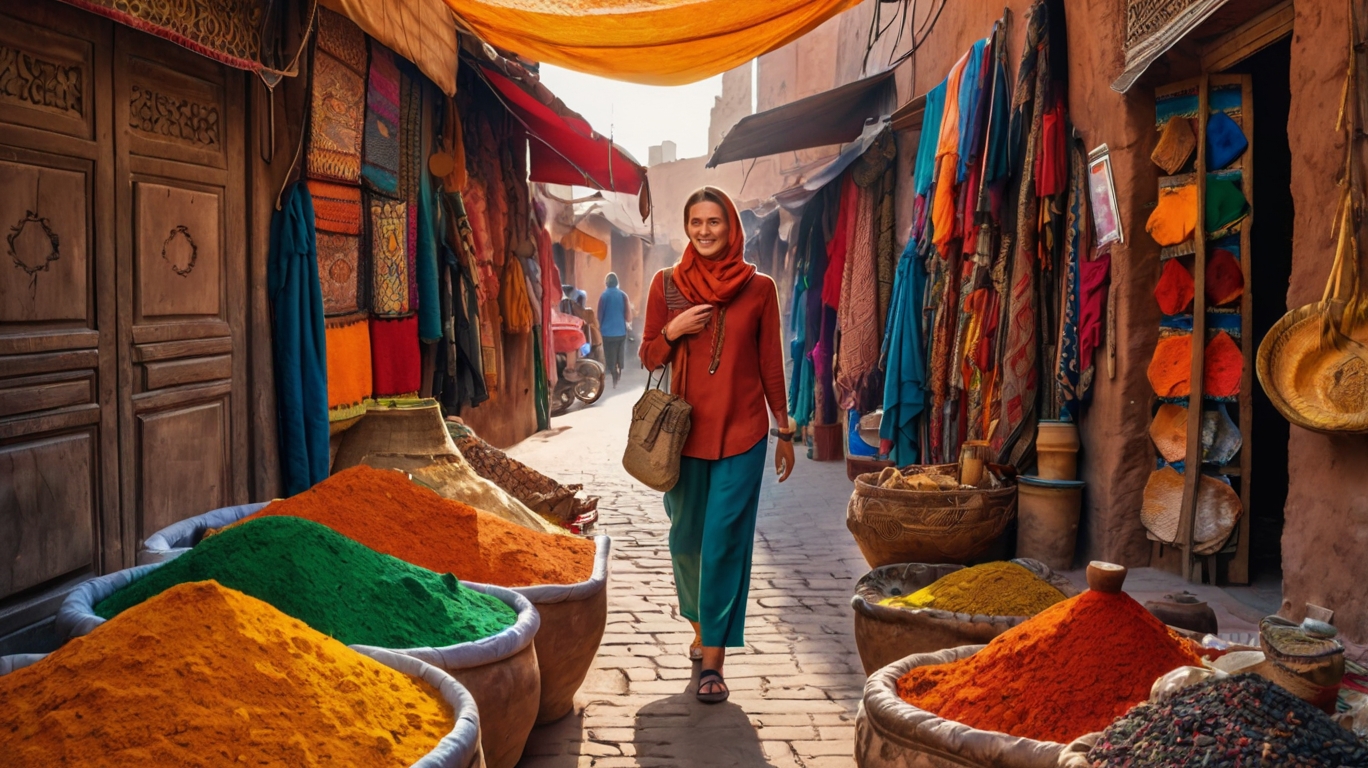Empowering Travel Tips for Solo Female Travelers
Introduction
Traveling solo as a female can be an incredibly rewarding experience. The freedom to explore new destinations on your own terms, the joy of meeting new people, and the thrill of discovering different cultures are just a few of the perks. However, solo female travelers face unique challenges that require careful planning and awareness. Whether you’re an experienced traveler or embarking on your first solo trip, these tips will help you stay safe and make the most of your adventure.
Planning Your Trip
Research Your Destination
Before you set off, it’s crucial to thoroughly research your destination. Look into local customs, cultural norms, and areas to avoid. Websites like TripAdvisor and Lonely Planet are excellent resources for up-to-date information from fellow travelers. Understanding the political climate and any travel advisories is also important to ensure your safety.
Create a Flexible Itinerary
While spontaneity is part of the fun, having a flexible itinerary can provide structure and security. Outline key activities and sights you want to visit, but leave room for unexpected opportunities. Share your itinerary with a trusted friend or family member, so someone knows your general whereabouts at all times.
Packing Essentials
Clothing Tips
Pack versatile clothing that can be layered to suit various weather conditions. Choose items that are comfortable, modest, and blend in with the local culture to avoid drawing unwanted attention. A lightweight scarf can be a lifesaver—it can cover your shoulders, act as a blanket, or even serve as a fashion accessory.
Safety Gadgets
Invest in some essential safety gadgets like a portable door lock, a whistle, and a personal alarm. A money belt or hidden pouch can help keep your valuables safe. Consider packing a small first aid kit for minor emergencies.
Toiletries and Health Items
Bring travel-sized toiletries and any personal hygiene products you might need, as they may not be readily available in all destinations. Don’t forget essential medications, a good sunscreen, and insect repellent.
Health and Safety Precautions
Vaccinations and Health Checks
Consult with a travel clinic or your healthcare provider about necessary vaccinations and health checks before your trip. Carry a copy of your immunization records and any prescription medications in their original packaging.
Travel Insurance
Never underestimate the importance of travel insurance. It can cover medical emergencies, trip cancellations, and lost belongings. Make sure your policy includes coverage for activities you plan to do, such as hiking or scuba diving.
Emergency Contacts
Keep a list of emergency contacts, including local embassy or consulate numbers, local emergency services, and contacts for family and friends. Store this information in multiple places, including your phone and a written copy.
Accommodation Choices
Hotels vs. Hostels
Both hotels and hostels have their pros and cons. Hotels offer more privacy and security, while hostels provide opportunities to meet fellow travelers. Choose accommodations with good reviews and safety ratings. Women-only dorms in hostels can be a good option for added security.
Staying in Safe Neighborhoods
Research the neighborhoods in your destination and choose accommodations in safe, well-lit areas. Avoid staying in isolated locations or places with a high crime rate.
Tips for Choosing Accommodations
Look for accommodations with 24-hour reception, secure locks, and a safe for valuables. Reading reviews from other solo female travelers can provide insights into the safety and quality of the place.
Navigating Transportation
Using Public Transport Safely
Public transport is often the most economical way to get around, but it requires caution. Always be aware of your surroundings and keep your belongings close. Avoid empty buses or trains, especially at night.
Renting Vehicles
If you plan to rent a vehicle, make sure you are familiar with the local driving laws and conditions. Always opt for reputable rental companies and check the vehicle for any damage before use.
Ride-Sharing Apps
Ride-sharing apps like Uber and Lyft can be convenient, but always check the driver’s details and share your ride information with someone you trust. Sit in the back seat and avoid sharing personal information with the driver.
Staying Connected
Mobile Phones and SIM Cards
Having a working phone is essential for staying connected. Purchase a local SIM card upon arrival or ensure your phone plan covers international roaming. Apps like WhatsApp and Viber can help you stay in touch with family and friends.
Internet Access and Wi-Fi
Wi-Fi is available in most urban areas, but it can be spotty in remote locations. Consider carrying a portable Wi-Fi device for reliable internet access. Be cautious when using public Wi-Fi networks and avoid accessing sensitive information.
Staying in Touch with Family and Friends
Regularly check in with family and friends to keep them updated on your whereabouts. Social media can be a fun way to share your experiences, but avoid sharing real-time locations for security reasons.
Local Customs and Etiquette
Understanding Cultural Norms
Every destination has its own set of cultural norms and expectations. Respect local customs, especially regarding dress codes, behavior, and social interactions. This shows respect and helps you blend in better.

Dressing Appropriately
Dressing modestly can help you avoid unwanted attention. In many cultures, covering your shoulders, chest, and knees is considered respectful. Research the local dress code before packing.
Learning Basic Phrases
Learning a few basic phrases in the local language can go a long way. Phrases like “hello,” “thank you,” and “help” are particularly useful. Locals often appreciate the effort and it can help you navigate better.
Budgeting and Money Management
Setting a Travel Budget
Create a realistic budget that includes accommodation, food, transportation, activities, and a contingency fund for emergencies. Keeping track of your expenses can help you stay within budget.
Keeping Money Safe
Divide your money into different places, such as your wallet, hidden pouch, and a secure bag. Avoid carrying large amounts of cash and use ATMs in well-lit, secure locations.
Using Credit Cards and Cash
Credit cards are convenient, but not always accepted everywhere. Carry some local currency for small purchases and emergencies. Inform your bank about your travel plans to avoid any issues with your cards.
Solo Dining and Socializing
Eating Alone Confidently
Eating alone can be daunting, but it can also be a liberating experience. Bring a book or journal if you feel self-conscious. Opt for busy restaurants where solo diners are common.
Joining Group Activities
Joining group tours or activities can be a great way to meet people and explore safely. Look for female-only tours or meetups tailored to solo travelers.
Making Friends on the Road
Be open to meeting new people but trust your instincts. Stay in touch with fellow travelers you meet along the way and consider traveling together for parts of your journey.
Staying Safe at Night
Nighttime Precautions
Plan your evenings in advance and know how you’ll get back to your accommodation. Stick to well-lit, populated areas and avoid walking alone at night.
Choosing Safe Nightlife Spots
Research nightlife spots that are known for being safe. Always keep an eye on your drink and avoid accepting drinks



